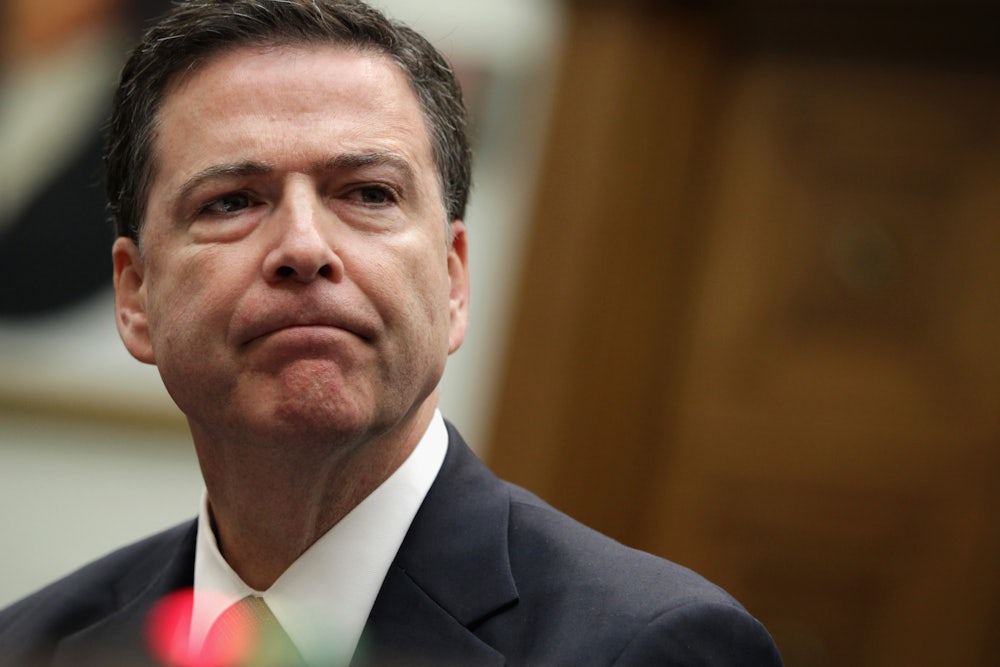He set himself up as the election’s wildest wild card in July, when he tore into Hillary Clinton’s use of a private email server, even as he announced that the FBI would not recommend that she be prosecuted. That press conference alienated both sides while politicizing the FBI, which, ironically, was threading this needle so it would not to be seen as a political tool.
Ten days ago, Comey reemerged in the form of a cryptic letter to Congress, in which he announced that new emails relating to the FBI’s investigation of Clinton’s private server may have been discovered. Democrats went ballistic, and for good reason. There was very little useful information in the letter itself, and it was clear that the FBI did not even know if the emails were relevant at all. Comey had broken with decades of precedent and had involved the FBI in an election.
On Sunday, Comey emerged again—hopefully for the final time—to send another letter, this time exonerating Clinton, ending a purposeless, but not consequence-less rollercoaster ride. Millions of people voted in the days between Comey’s first and second letters, quite possibly under the impression that the FBI was sitting on a bombshell. This could end up costing Democrats the Senate.
The most charitable interpretation of Comey’s actions was that he was trying to keep a hyper-partisan Republican Congress happy. He may have also been trying to mollify a rabid anti-Clinton contingent within the FBI. Sensing that Republicans would flip out if they found out about the new emails after the election, Comey tried to head off a crisis over the FBI’s legitimacy. But it backfired—the FBI has never seemed so political, and Comey has no backers left on either side of the aisle.
The destruction of James Comey by political pressure is painful to watch. He is being twisted into an indefensible pretzel of contradictions
— Newt Gingrich (@newtgingrich) November 6, 2016
For 9 days, over 20 million people early voted thinking the FBI had something big on Hillary.
— Joe Walsh (@WalshFreedom) November 7, 2016
I'm a Trump guy, but, man, that's not right.
Ok, due to popular demand I an revising this Tweet. Now apparently NO ONE has a kind word for Comey! https://t.co/oTDUqqdZdm
— David Axelrod (@davidaxelrod) November 6, 2016
